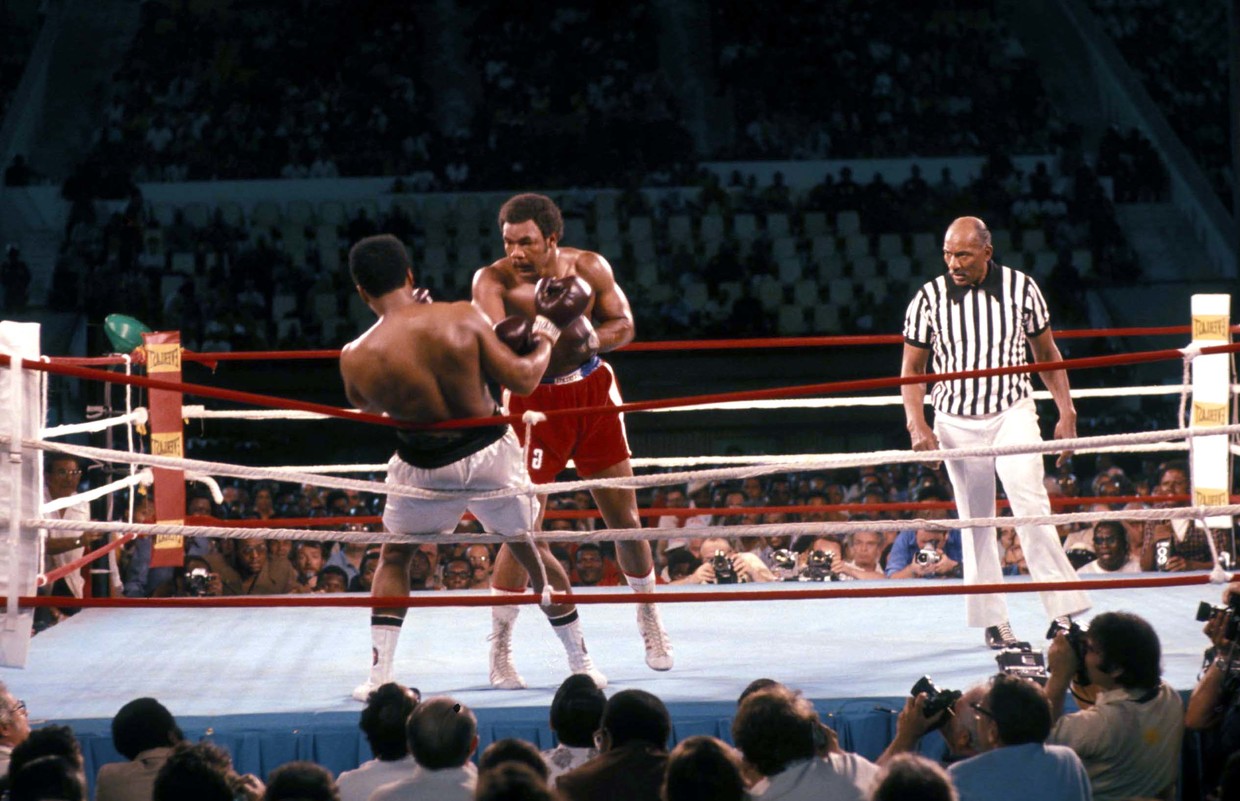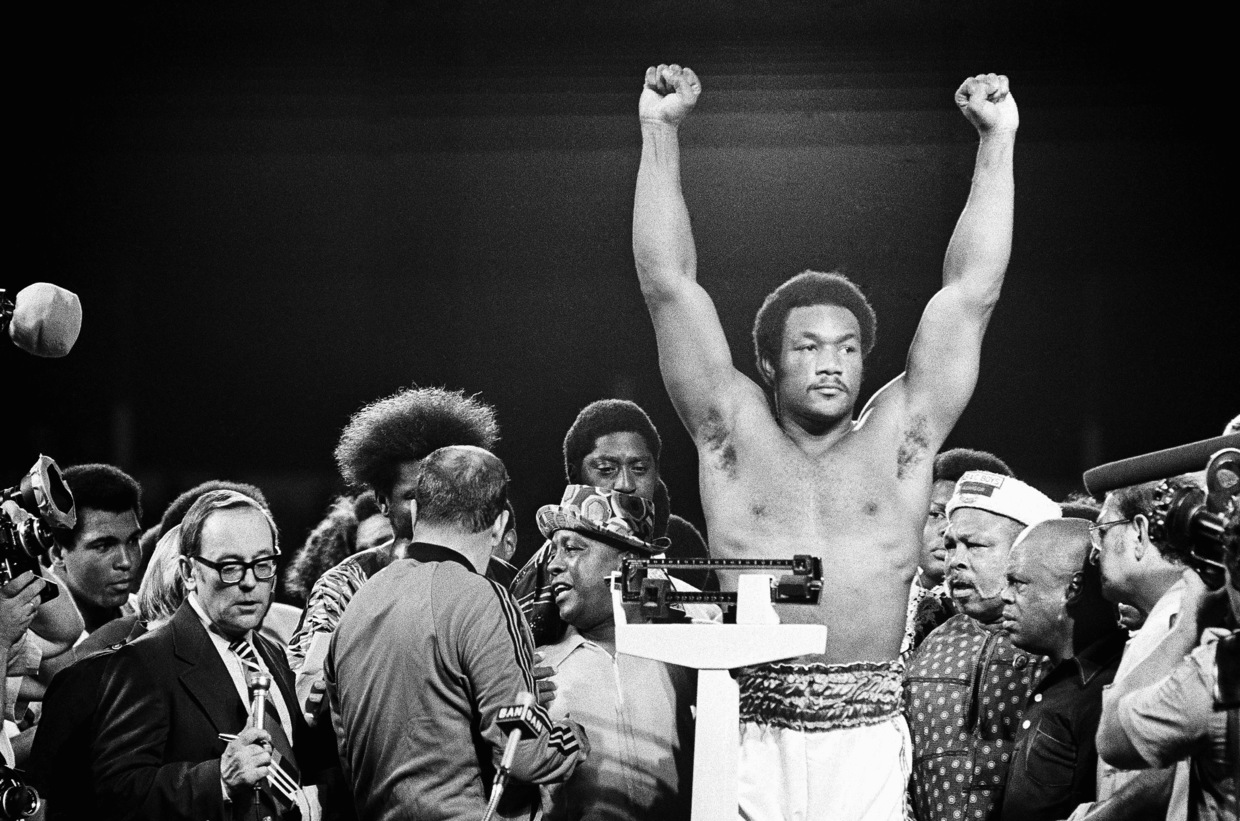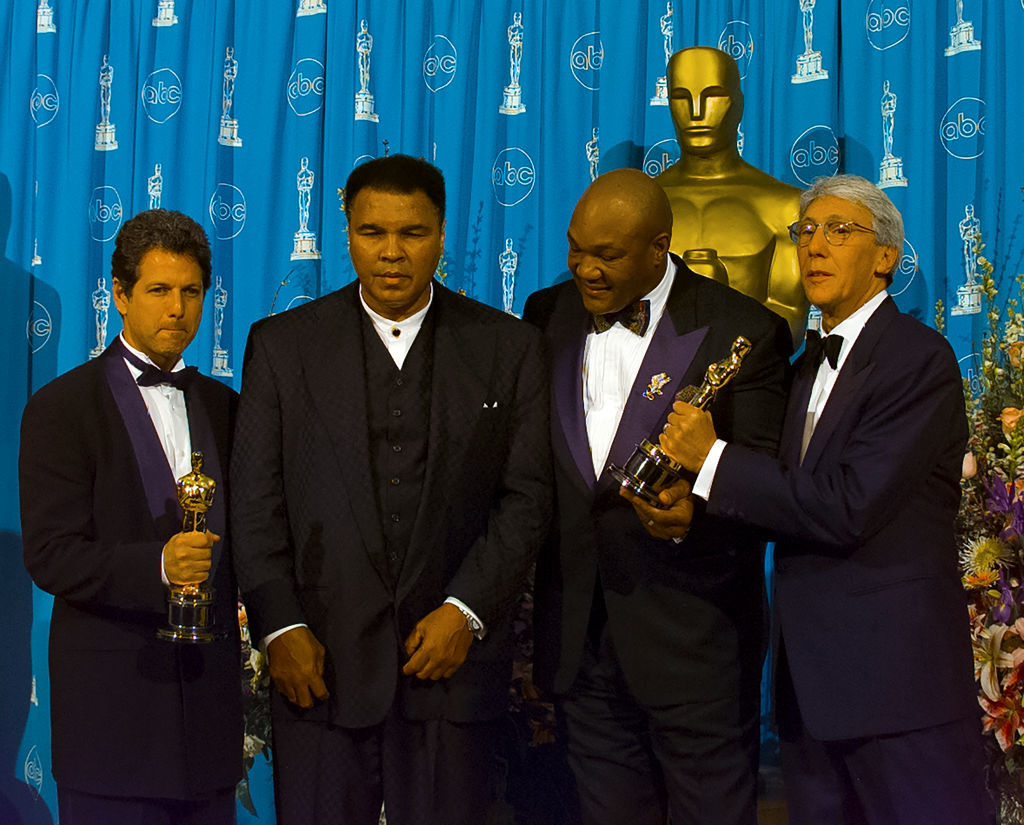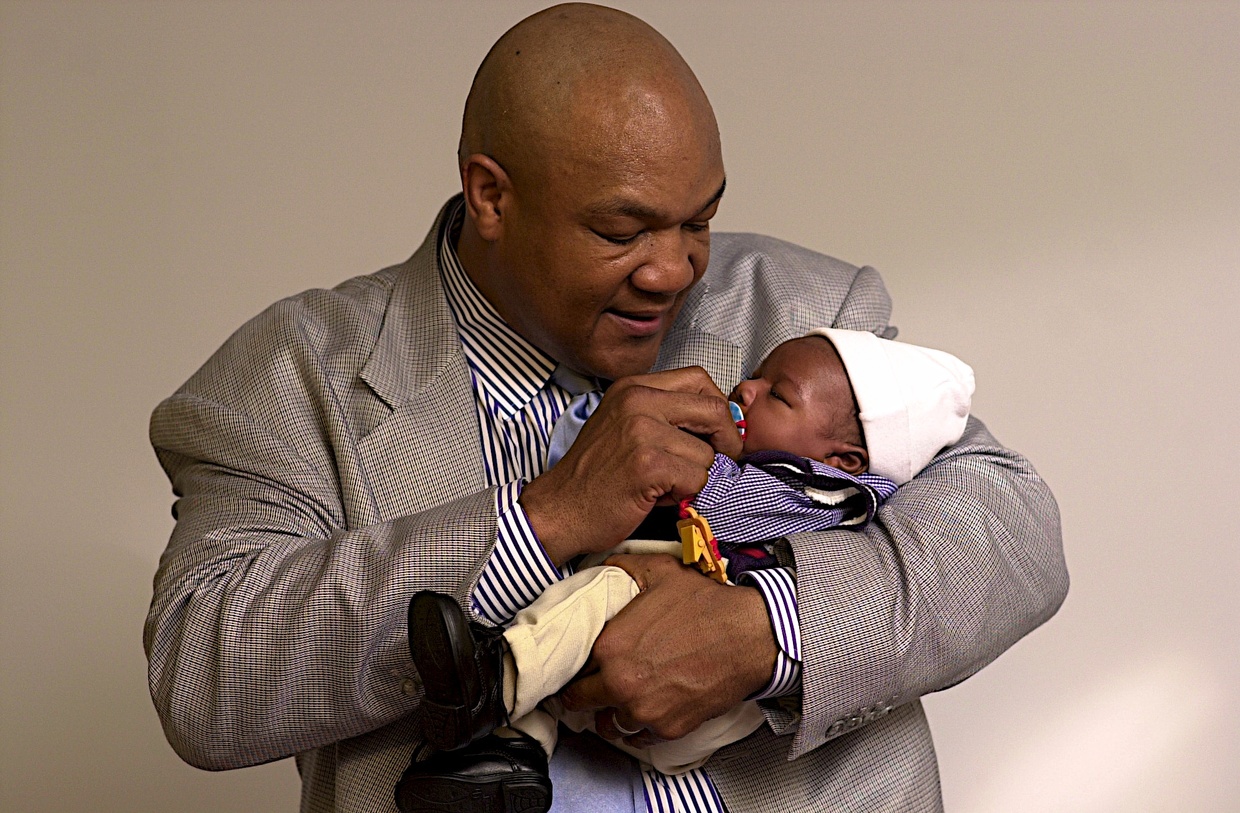George Foreman, a heavyweight boxing champion who returned to the sport to regain his title at the improbable age of 45, and who parlayed his fame and his amiable personality into a multimillion-dollar grill business, died on Friday night in Houston. He was 76.
Legendary boxer and two-time world heavyweight champion George Foreman has passed away at the age of 76, his family said on Saturday in a post on Instagram. Known as ‘Big George’ in the ring, the American athlete built a long, remarkable career in the sport.
Foreman’s career started with amateur boxing after moving from Texas to California. He retired in 1997 with a career record of 76 wins, 68 by knockouts, and only five losses.
“With profound sorrow, we announce the passing of our beloved George Edward Foreman Sr, who peacefully departed on March 21, 2025, surrounded by loved ones,” the family said.
Foreman won the heavyweight gold medal at the 1968 Olympics in Mexico City at the age of 19. Five years later, he won his first world heavyweight championship. He did it again in 1994 when he was 45, making him the oldest heavyweight champion ever.
One of Foreman’s most famous fights was against Muhammad Ali in 1974, which he lost in an eighth-round knockout, and was chronicled in the Oscar-winning documentary ‘When We Were Kings’. After he lost to Ali, the boxing legend fought five more times before he retired to begin a career as an ordained minister in his native Texas. However, he returned to boxing in 1987 at the age of 38.
In 1994, he launched the George Foreman Grill, which went on to sell more than 100 million units worldwide. He sold the commercial rights to the grill for $138 million in 1999.
His final fight took place in November 1997, a majority decision loss to Shannon Briggs. In 2002, Foreman was named one of the 25 greatest fighters of the past 80 years by The Ring magazine, which also ranked him as the ninth-greatest puncher of all time. He was an HBO ringside analyst for 12 years, ending in 2004.
George Edward Foreman was born on Jan. 10, 1949, in Marshall, Texas. His father, J.D. Foreman, was a railroad construction worker. His mother was Nancy Ree (Nelson) Foreman. As an adult, he learned that his biological father was a man named Leroy Moorehead.
Foreman was candid about having been a bully and a petty criminal in his youth. After dropping out of school, he joined the Job Corps at 16. At 17, he tried his hand at boxing.
Success came quickly in the amateur ranks; only a year and a half later he was Olympic heavyweight champion, defeating Ionas Chepulis of the Soviet Union by a second-round knockout in Mexico City in 1968.
After the fight, Foreman, who was Black, waved a small American flag in the ring, days after the track athletes Tommie Smith and John Carlos raised clenched fists during the national anthem to protest the country’s treatment of Black people.
“I was just glad to be an American,” Foreman said afterward. “Some people have tried to make something of it, calling me an Uncle Tom, but I’m not. I just believe people should live together in peace.”
Turning professional, he started a heavy schedule of fights, as many as a dozen in a year. He was 37-0 when he got his first shot at a world heavyweight title against Frazier in Kingston, Jamaica, in 1973.
Though he was a 3-1 underdog, Foreman dominated the fight, knocking Frazier down six times before the contest was stopped halfway through the second round. One of those knockdowns led the television announcer Howard Cosell to utter one of boxing’s most famous calls: “Down goes Frazier! Down goes Frazier!”
“It was unbelievable,” the New York Times sports columnist Arthur Daley wrote. “In little more than four and a half minutes, George Foreman destroyed Joe Frazier tonight, and the man who supposedly couldn’t lose never had even one ghost of a chance for victory. So there is a new heavyweight champion of the world, and he won it with authority in an explosive demonstration of overpowering punching skills.”
Foreman defended the title twice before a match with Ali in Zaire (now the Democratic Republic of Congo) in 1974 that would become known as the Rumble in the Jungle. This time, Foreman was the favorite, but Ali reclaimed the title, dealing Foreman his first career loss.
Ali used his “rope-a-dope” strategy, resting on the top rope and allowing Foreman to punch him but also to tire himself out. Ali finished the fight with a left-right combination knockout in the eighth round.
Foreman had five more victories, including another one over Frazier. But after losing to Jimmy Young in 1977, he elected to hang up his gloves at age 28, citing his religious beliefs and his mother’s wishes.
©Getty Images/Bob Riha Jr/Contributor
He turned to religious vocation in his retirement years, by serving as a nondenominational Christian minister in Houston and by starting a youth center.
But the ring lured him back. “I want to be champion again,” he said in 1987. “I’ve got a three-year plan. I want to start at the bottom. Train harder than any man in the world. Fight once a month.”
He admitted that money was a factor as well. “You know that story about how you have four pockets in your pants, and you better save what’s in one pocket so you can live?” he told Dave Anderson of The Times. “I saved one pocket. I’ve got money for steak and potatoes. But the other three pockets I just blew.”
Sure enough, Foreman fought frequently, as many as nine times in a year. He cranked out 24 straight wins, although most were against boxers of lesser ability. That set him up for a title shot at age 42 against Holyfield, the champion, in 1991. Foreman lost the decision but put forth a creditable performance.
The Times described Foreman as “fit and courageous.” But the general reaction was that his performance was little more than a brave effort. Surely that seemed to be the end of Foreman’s title dreams.
He scored a few more wins and lost to Tommy Morrison, but then he managed to land another title shot in 1994, in Las Vegas against Moorer, 26, who had defeated Holyfield. Some called it undeserved and suggested that Foreman got the chance only because of his fame and the novelty of his age. “It’s not about deserving,” he said with a smile, “because I’ve got it.”
Foreman was trailing on the judges’ scorecards when he managed to land the big punch he was looking for and knocked Moorer out in the 10th round. Moorer had thrown 641 punches, to 369 by Foreman. But the last one was the one that counted.
Foreman had stood rather than sit on a stool between rounds, as if to defy his 45 years. He became the oldest heavyweight champion in history.
“Anything you desire, you can make happen,” he said after the fight. “It’s like the song, ‘When you wish upon a star your dreams come true.’ Well, look at me tonight.”
Foreman defended his belt against a German fighter, Axel Schulz. But the governing bodies that awarded the championship began to strip him of his belts as he declined to fight the challengers they mandated. Instead, Foreman faced and defeated a couple of lesser fighters. His final fight was a loss, a close decision to Shannon Briggs in 1997. He was 48.
He finished with a professional record of 76-5 and is widely regarded as one of the 10 best heavyweight fighters of all time; a Ring magazine survey in 2017 ranked him seventh. He was inducted into the Boxing Hall of Fame in 2003.
©Michael Brennan/Getty Images
Foreman returned to his youth center, did commentary for televised boxing broadcasts and, most lucratively, sold hamburger grills.
Foreman began endorsing the George Foreman Grill in 1994, with a big smile and predictable but still charming lines like “It’s a knockout.” The grills were electric and portable and could be used inside as an alternative to outdoor charcoal grilling. Foreman helped make the grills an American kitchen mainstay.
In 1999, Salton Inc. paid $137.5 million for worldwide rights to use Foreman’s name on grills; Foreman got about 75 percent of the payout. He also endorsed mufflers, fried chicken and chips.
Foreman’s affability helped him transcend boxing and cross over into the media world. In 1993-94, in the midst of his comeback, he starred in “George,” a short-lived sitcom on ABC in which he played a retired boxer helping troubled youth, and he made guest appearances on several other shows over the years. He appeared in a Venus-flytrap costume on the reality competition show “The Masked Singer” in 2022. (His performance of “Get Ready” by the Temptations was not enough to stave off elimination.)
In addition to his brother, Foreman is survived by his wife, Mary Joan Martelly, whom he married in 1985. He had previously been married four times.
His survivors also include six daughters — Natalia, Leola, Michi, Georgetta, Isabella and Courtney Foreman — and five sons. A seventh daughter, Freeda Foreman, died in 2019.
All of Foreman’s sons were named George: George Jr., George III, George IV, George V and George VI. In 2005, he collaborated with the author Fran Manushkin on a children’s book called “Let George Do It!” about a household full of Georges, like his own.
It reads: “‘Today is Big George’s birthday,’ Mom tells the assembled boys. ‘Can I count on all of you to help with the party?’
“‘You bet,’ said George, George, George and George. ‘Urgle,’ said Baby George.”
One key to Foreman’s business success in so many areas, he said, was his willingness to make personal appearances.
“That’s bigger than anything, any endorsement, I don’t care who you are,” he said. “They want to touch you; they want to know you.”
“Then,” he said, “they buy you.”






No comments:
Post a Comment